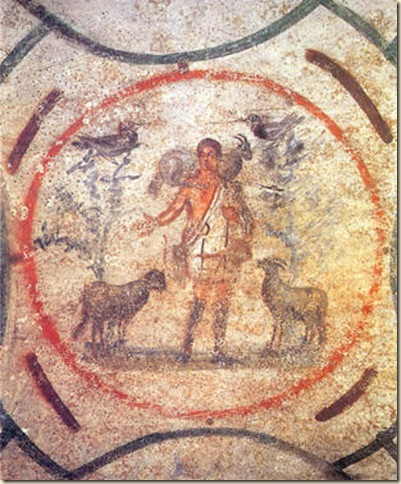- Jul 2, 2018
- 18,580
- 11,386
- Country
- United States
- Faith
- Christian
- Marital Status
- Married
I have in these comments made two assumptions both very doubtful, and both favorable to the traditional creed.
* It must be noted that the endlessness of the happiness of the Redeemed depends, not on any meaning we assign to aionios. but on its own intrinsic nature, as resulting from union with Him, Who is endless life; and on texts easily to be found elsewhere, e.g., he that does the will of God abides for ever, 1 Jno. ii. 17; Because I live you shall live also, S. Jno. xiv. 19; If a man keep My saying he shall never taste of death. - S. Jno. viii. 51, cf v. 35. Compare Ps. cii. 28.
(I.) I have assumed the reference of aionios to time, which is not capable of proof; for with perfect fairness it may have here that spiritual, ethical meaning it unquestionably at times has in the New Testament; and the meaning then would be, that just and unjust pass into aeonian, i.e., spiritual states of punishment and bliss respectively. (II.) I have assumed the primary reference of this passage to the final Judgment, but that is most improbable; for these words close a continuous discourse extending over chapters xxiv-v. (which our division into chapters obscures.) There is no break throughout. And the question of the disciples, in ch. xxiv., is not about the end of the "world," but of the "age". Thus, if we divest ourselves of traditional impressions, and take Scripture itself as our guide, we see that it is not fair to refer to a distant future, that judgment of which Christ Himself says distinctly, (ch. xxiv. 34,) that ALL THE THINGS He is speaking of should be fulfilled before the passing away of the then generation; and which finds a perfectly natural fulfillment in the terrible calamities, consequent on the fall of Jerusalem, and the end of the (Jewish) age (as these events would be described in Eastern metaphor). And indeed our Lord's words, "all the nations" v. 32, seem to refer to national judgments, and to indicate, in dramatic form, the principle on which judgment falls on nations; certainly increasing reflection makes this reference seem increasingly probable.
Christ Triumphant by Thomas Allin chapter nine --- bold emphasis mine
* It must be noted that the endlessness of the happiness of the Redeemed depends, not on any meaning we assign to aionios. but on its own intrinsic nature, as resulting from union with Him, Who is endless life; and on texts easily to be found elsewhere, e.g., he that does the will of God abides for ever, 1 Jno. ii. 17; Because I live you shall live also, S. Jno. xiv. 19; If a man keep My saying he shall never taste of death. - S. Jno. viii. 51, cf v. 35. Compare Ps. cii. 28.
(I.) I have assumed the reference of aionios to time, which is not capable of proof; for with perfect fairness it may have here that spiritual, ethical meaning it unquestionably at times has in the New Testament; and the meaning then would be, that just and unjust pass into aeonian, i.e., spiritual states of punishment and bliss respectively. (II.) I have assumed the primary reference of this passage to the final Judgment, but that is most improbable; for these words close a continuous discourse extending over chapters xxiv-v. (which our division into chapters obscures.) There is no break throughout. And the question of the disciples, in ch. xxiv., is not about the end of the "world," but of the "age". Thus, if we divest ourselves of traditional impressions, and take Scripture itself as our guide, we see that it is not fair to refer to a distant future, that judgment of which Christ Himself says distinctly, (ch. xxiv. 34,) that ALL THE THINGS He is speaking of should be fulfilled before the passing away of the then generation; and which finds a perfectly natural fulfillment in the terrible calamities, consequent on the fall of Jerusalem, and the end of the (Jewish) age (as these events would be described in Eastern metaphor). And indeed our Lord's words, "all the nations" v. 32, seem to refer to national judgments, and to indicate, in dramatic form, the principle on which judgment falls on nations; certainly increasing reflection makes this reference seem increasingly probable.
Christ Triumphant by Thomas Allin chapter nine --- bold emphasis mine
Upvote
0

